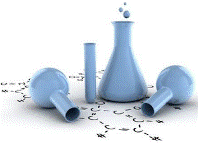Chemical and Biomolecular Engineering, Department of

Department of Chemical and Biomolecular Engineering: Faculty Publications
ORCID IDs
Date of this Version
2019
Document Type
Article
Citation
Biomolecules 2019, 9, 851
Abstract
In an era of improved survival due to modern antiretroviral therapy, liver disease has become a major cause of morbidity and mortality, resulting in death in 15–17% of human immunodeficiency virus (HIV)-infected patients. Alcohol enhances HIV-mediated liver damage and promotes the progression to advanced fibrosis and cirrhosis. However, the mechanisms behind these events are uncertain. Here, we hypothesize that ethanol metabolism potentiates accumulation of HIV in hepatocytes, causing oxidative stress and intensive apoptotic cell death. Engulfment of HIV-containing apoptotic hepatocytes by non-parenchymal cells (NPCs) triggers their activation and liver injury progression. This study was performed on primary human hepatocytes and Huh7.5-CYP cells infected with HIV-1ADA, and major findings were confirmed by pilot data obtained on ethanol-fed HIV-injected chimeric mice with humanized livers. We demonstrated that ethanol exposure potentiates HIV accumulation in hepatocytes by suppressing HIV degradation by lysosomes and proteasomes. This leads to increased oxidative stress and hepatocyte apoptosis. Exposure of HIV-infected apoptotic hepatocytes to NPCs activates the inflammasome in macrophages and pro-fibrotic genes in hepatic stellate cells. We conclude that while HIV and ethanol metabolism-triggered apoptosis clears up HIV-infected hepatocytes, continued generation of HIV-expressing apoptotic bodies may be detrimental for progression of liver inflammation and fibrosis due to constant activation of NPCs.


Comments
© 2019 by the authors.
Open access
doi:10.3390/biom9120851